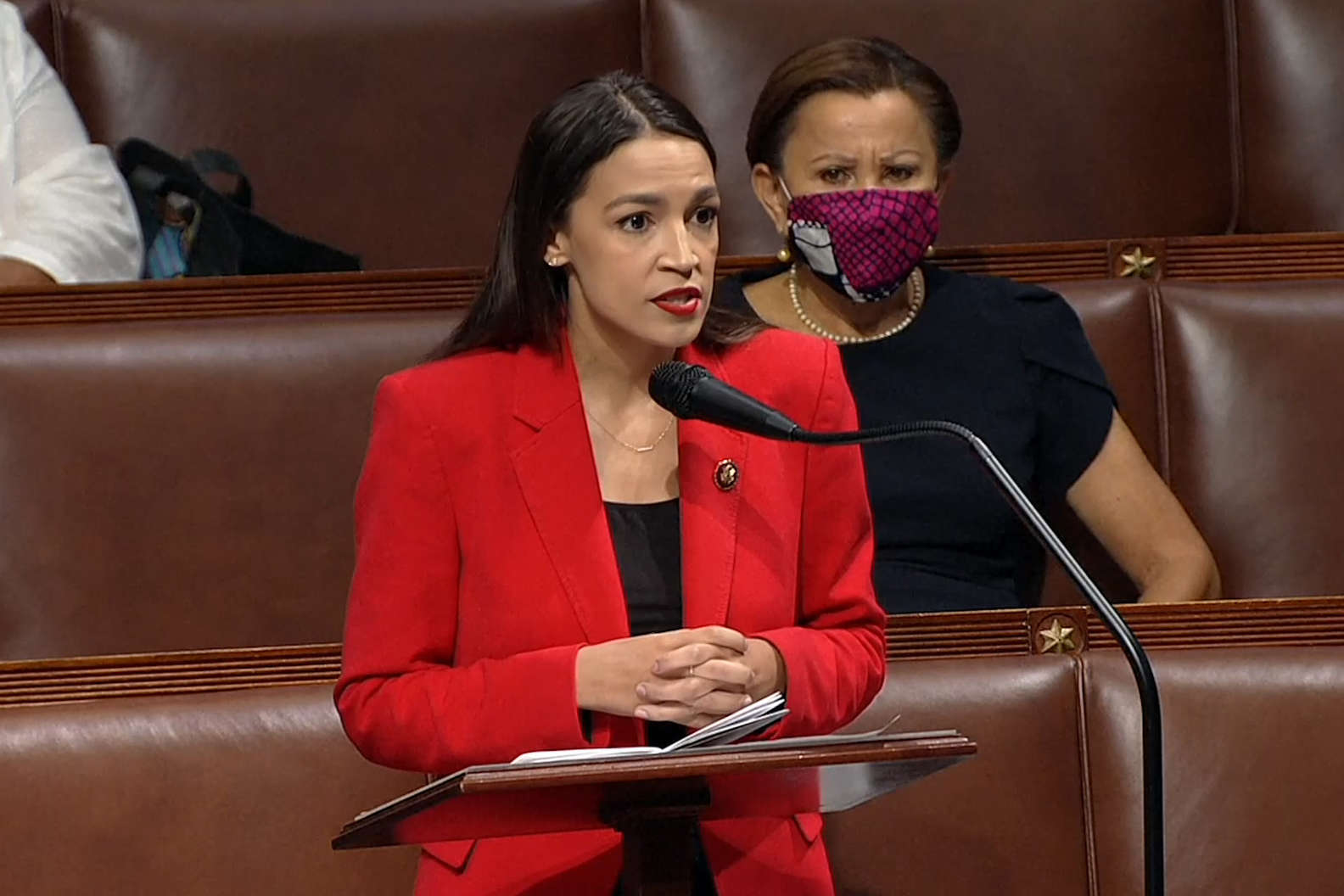According to a report by The Hill, Rep. Ted Yoho (R-FL) was coming down the steps on the east side of the Capitol on Monday, July 20 as Rep. Alexandria Ocasio-Cortez (AOC) (D-NY) was coming up. Then, in an exchange overheard by a reporter, Yoho began to berate her, saying she was “out of your freaking mind” and “disgusting” because she suggested, “that poverty and unemployment are driving a spike in crime in New York City during the coronavirus pandemic.” Ocasio-Cortez then responded that Yoho was being “rude,” and as the two parted ways, Yoho joined Rep. Roger Williams (R-TX) and called Ocasio-Cortez a, “f***ing b***h.”
On the House floor Wednesday morning, July 23, Rep. Yoho delivered a sort-of apology for the confrontation that didn’t seem to cover the extent of what he said to his fellow coworker.
“I rise to apologize for the abrupt manner of the conversation I had with my colleague from New York. It is true that we disagree on policies and visions for America, but that does not mean we should be disrespectful,” Rep. Yoho said. “Having been married for 45 years with two daughters, I’m very cognizant of my language. The offensive name-calling, words attributed to me by the press were never spoken to my colleagues and if they were construed that way, I apologize for their misunderstanding.”
AOC said that the language used by Yoho, who was accompanied by Rep. Roger Williams (R-TX) during the incident, was not new or incidental to her or any woman in America, but rather the product of a larger cultural problem.
“It is a culture of lack of impunity, of accepting of violence and violent language against women, and an entire structure of power that supports that,” she said, noting that she has previously been spoken to disrespectfully by other lawmakers as well as President Trump, who last year told her and several other women lawmakers of color to “go back” to the countries they came from. In her statement, Ocasio-Cortez also referenced the abusive comments she’s received while working service jobs at bars in New York City.
Professor Soribel Genao, who teaches Education Leadership at Queens College, offered her remarks on the situation.. “I think AOC is a great representation of what our young black, brown and women of color are in need of. Her fearless ways are a true example of what it is we question every day.”
“I’m very unassuming and petite,” Dr. Genao mentions micro-aggressions she faces at work as a Latinx woman who looks younger than she is. “My first day as a professor, I had a student telling me once, ‘What could I possibly learn from you?’”
Alba Echeverry alum Political Science major commends Ocasio-Cortez’s speech. “Her speech shed light on a bigger issue many women in all different workplaces face: abusive language by men who think it’s okay to treat women like garbage but then try to justify it by saying they like women enough to have kids with them.”
Echeverry spoke on micro-aggressions she faced at work as a woman. She worked as a summer camp counselor from 9 AM – 5 PM with no air conditioning most of the time. As a result, wearing appropriate clothes was a concern for the staff. “We obviously can’t wear something like booty shorts since we work with kids. Us girls would mostly wear either shorts with the same material as leggings or the cotton basketball shorts guys sometimes wear but never were the shorts super short.
“Anyway, one day one of our program directors sends someone to tell every single girl that worked there to meet her in the cafeteria. When all of us get there the program director (a woman by the way) tells us to stop wearing shorts that show off our bodies because we were putting on a show for everyone. She wanted us to wear basically the baggiest clothes so that everyone else doesn’t see that we have curves because it would be too distracting. We had to hide our bodies. It wasn’t a problem that everyone else thought it was okay to stare at our bodies and then complain about it but rather it was a problem that we even dare have bodies and wear shorts in 95-degree weather.”
Ocasio-Cortez is a public example of the remarks and aggression women face in the workplace. That whenever a woman is trying to speak out on issues or their opinions, they are marked off as a “b**ch” or “crazy” or “overreacting.”
According to LeanIn.org, for 64% of women, microaggressions are a workplace reality. Women have to provide more evidence of their competence than men and are also two times as likely to have been mistaken for someone in a more junior position. Black women deal with a greater variety of microaggressions and are more likely than other women to have their judgment questioned in their area of expertise.
“Women are not ‘incapable of controlling our emotions’ or PMSing, we’re fighting back against a society that is constantly trying to push us down and silence us. We are just as talented, intelligent, and capable as men, probably even more and therefore we should be able to use our voices without backlash. For me she’s become a role model, she’s inspired me to demand more respect from men and to demand more equality in the environments I’m in whether it’s at work or at home,” Echeverry comments.














